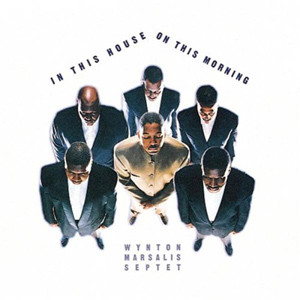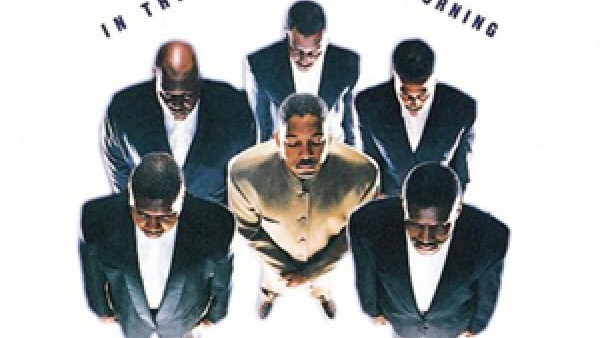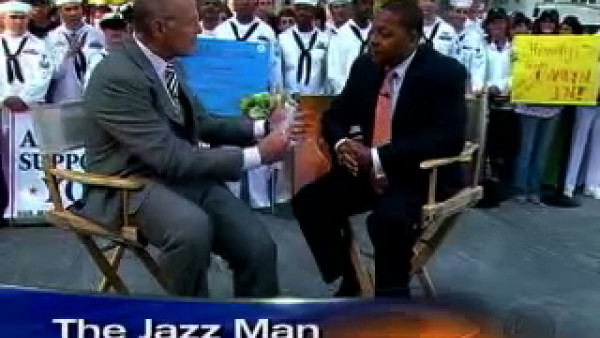Marsalis Takes Jazz To Church
Years from now, they’ll still be talking about the concert that lit up a grand old church on the South Side of Chicago.
They’ll reminisce about the jazz band that dared to offer a three-hour show from the pulpit of a 19th Century house of worship. They’ll recall how brilliantly the seven musicians played, how frequently the congregation sprang to its feet, how often it fell silent during passages of mystery and reverie.
Most of all, they’ll remember a performance that evoked a church service more than it did a jazz set, even if few words were spoken. The message was in the music itself, the sermon stated in the solos, embellished in intricate ensemble passages and embraced by an eager constituency.
Though many listeners already were acquainted with the recording of trumpeter Wynton Marsalis’ “In This House, On This Morning,” they surely discovered that the CD represents only a rough sketch of what the piece can accomplish live, in person, in a church. Because Marsalis and his septet had played an unfinished version of the composition two years ago in New York’s Lincoln Center, the band’s performance of the complete work Wednesday night in Quinn Chapel, 24th Street and Wabash Avenue, amounted to its American premiere.
Part tone poem, part sacred suite, part jazz improvisation on noble themes, “In This House” unfolded in unexpectedly sweeping terms. Though the piece can seem a bit episodic on recording, as it bounces between moments of contemplation and revelation, in live performance it sounded no more segmented than a church service itself.
In other words, just as a congregation files into a sanctuary and experiences different stages of spiritual exultation before filing out, so, too, does this work re-create the tension, climax and release of communal religious experience. In fact, “In This House” could not achieve its most profound moments without exploring the moods and sentiments that lead up to spiritual revelation.
The “Devotional” and “Call to Prayer” vignettes that open the piece, with Marsalis’ nearly frenzied trumpet lines suggesting the sound of a ram’s horn played in antiquity, immediately establish the epic tone and religious subject matter at hand. By the time the band has launched into the jubilant rhythms and sunny harmonies of the “Processional,” there’s no doubt that the spiritual journey has begun in earnest.
Before long, the incendiary alto and tenor solos of “Representative Offerings,” the exquisitely introspective melody of the “Hymn” and the ecstatic, nearly hysterical tenor solo on “Altar Call” testify to the intensity of the service and the depth of the score.
The work reaches its most fevered pitch in the “Holy Ghost” section of the “Sermon,” and neither the recording nor the band’s previous readings of this excerpt approach the visceral excitement of the church performance. To hear this band throwing off repeated notes at such a clip, with the audience on its feet and sometimes screaming, was to understand anew the power of a church service-or a vivid representation of one-to stir the spirit.
As the piece closes, with the incantations of the “Recessional,” the mystical themes of the “Benediction” and the radiant harmonies of the final pages, there’s no doubt that the odyssey has been completed, tranquility has been achieved.
If one missed hearing a vocal soloist singing the work’s title prayer (as Marion Williams does on the recording), if the piece suffered a bit without bassist Reginald Veal’s chants in the opening passages of the “Sermon” (bassist Ben Wolfe took his place for this performance), these were relatively minor flaws in an otherwise unforgettable performance.
It has taken Marsalis several years and several compositions to arrive at a work as searing as “In This House.”
Like the congregation that spent Wednesday night with him, he, too, has come a very long way.
by Howard Reich
Source: Chicago Tribune



